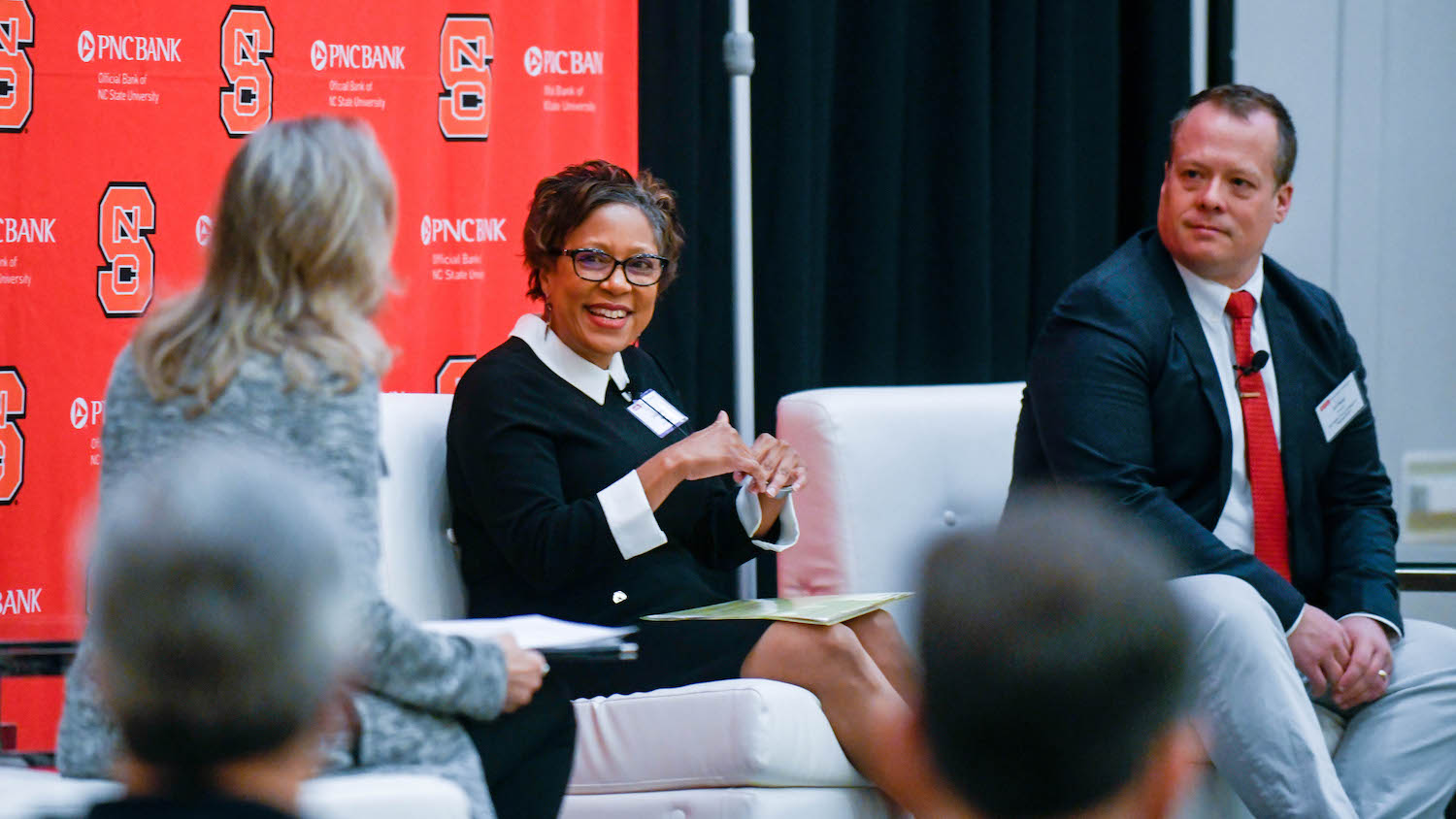The Poole College of Management and PNC Bank hosted the third installment of the PNC Thought Leadership series Nov. 13, with the focus on how data can be used for decision-making. Sherry Fowler, professor of practice in information technology and business analytics, led the discussion with a panel of industry experts that included:
-
Robert Chew, research data scientist and program manager, RTI International;
-
Oita Coleman, vice president of research and development, SAS Institute;
-
Bill Rand, associate professor of marketing, Poole College of Management.
The panel of experts describes big data as insights that can be made beyond the spreadsheet that bring large amounts of unstructured data together to make decisions. In business, big data is allowing companies to analyze trends in terms of sales and revenue and offer the ability to anticipate and understand what the future may bring.
Key Insights
1. Data skills students need
As business analytics is becoming a more relevant and crucial skill to have when entering the job market, students are encouraged to learn the basics. Rand suggests that students learn and understand every step of the data collection process from storing to cleaning to implementing the data into a model.
Coleman, on the other hand, believes that students should also know that curiosity is one of their greatest assets. Consistently asking “why” creates motivation to understand and solve problems at hand.
2. Understand data privacy
“It’s about ethics and bias working together in privacy,” said Coleman. “If someone is using information about you, you should understand the rules of the game.”
The discussion of data privacy is becoming more prevalent across industries, and knowing how your data is being used to benefit companies is extremely important. Rand believes that on top of consumer knowledge, companies need to be held accountable to establish and maintain positive relationships with consumers regarding data collection.
3. How big data is changing research
Rand stated that, historically, data has been dominated by statistics but now we are seeing a shift towards computer science and understanding data through its methods of research. Now, researchers are dealing with the same level of data as large corporations to quickly analyze large, unstructured data.
“Through these methods, we will see a better understanding of marketing and business operations as a whole,” said Rand.
4. Use big data for good
“Data for good is adding an additional perspective to analyze data that would traditionally be harder to quantify,” said Chew.
Data analytics is now being used to identify critical problems in society and is creating for-profit business opportunities to help those in need. Analyzing risks that lead to police deaths, looking at individuals who are at risk in the opioid epidemic and creating more service opportunities in fintech and legal tech are just some of the ways data analytics is helping the greater good.
5. How much data is too much
The biggest question among companies and data analysts is how much data is too much data. While the panelists agreed that it is subject to the problem and company, there are many ways to determine the right amount of data. Rand suggested collecting historical data to see the patterns of previous data collection determine the cut-off and Coleman said that the criticality of the decision determines the amount of data collected.
6. Avoid the pitfalls of data analytics
Analysts can face many problems when handling large amounts of unstructured data. Coleman believes that the biggest problem companies face is not having a clear strategy. She said that analysts need a clear purpose of the project at hand to move forward with problem-solving.
Rand warned against confirmation bias and encouraged analysts to use exploratory data analysis to find the right model for the project. Chew emphasized that managing project expectations through communication and not over-promising will lead to a successful data analysis.
To see the entire panel discussion, watch the Poole College of Management Facebook Live video.
For more photos, see the complete album.
- Categories:
- Series:



